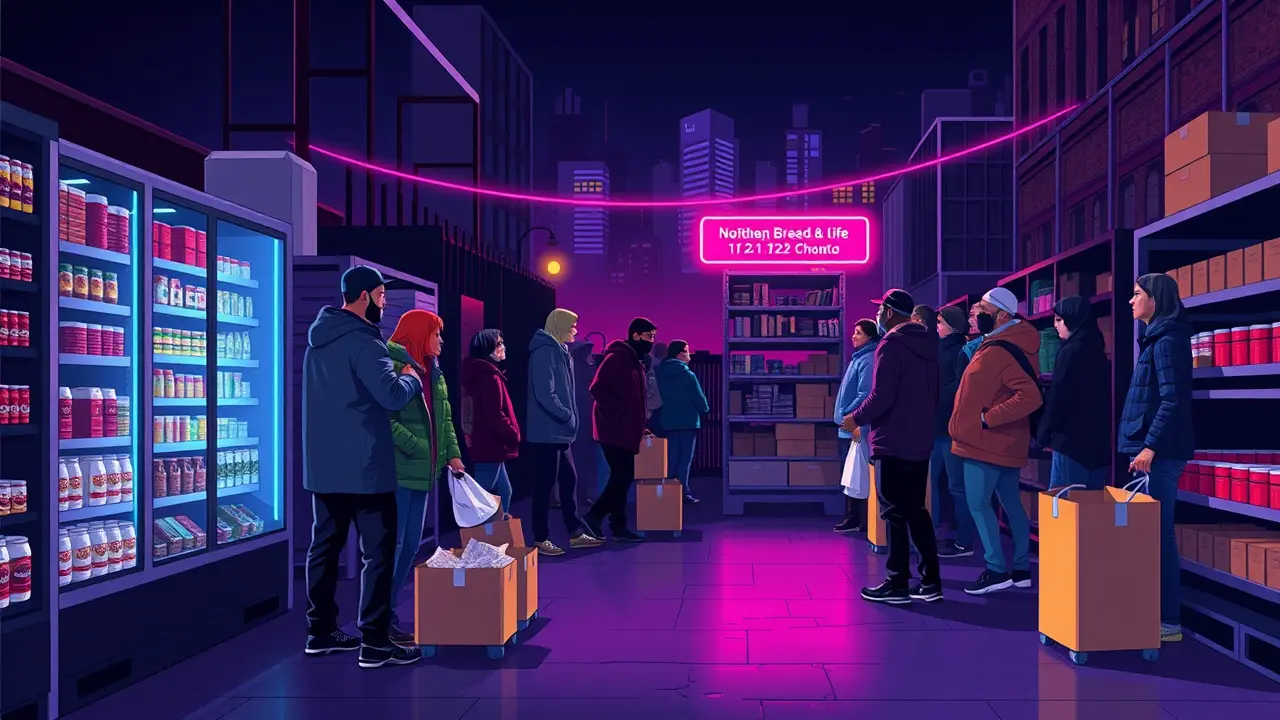
Politicshuman rights
US Food Aid Cuts Force Pantries to Prepare for Surge
AN
Anna Wright
2 days ago7 min read
The deliberate dismantling of America's social safety net is entering a new, crueler phase as the federal government terminates its Supplemental Nutrition Assistance Program, a decision that sends immediate shockwaves through communities already teetering on the precipice of food insecurity. In New York, a city of stark contrasts where opulence and deprivation exist side-by-side, food pantry coordinators are bracing not for a gradual increase in demand but for a veritable tsunami of need, a direct consequence of a policy shift that disproportionately targets the most vulnerable: low-income families, the working poor, and a generation of seniors who must now choose between life-saving medication and a week's worth of groceries.This isn't merely a budgetary adjustment; it is a profound moral failure, a calculated withdrawal of the state from its most fundamental duty to care for its citizens, echoing the harsh, means-tested ideologies of past decades that prioritized fiscal austerity over human dignity. The narrative of struggle is deeply personal and gendered; it is the single mother in the Bronx, her refrigerator echoing emptiness as she calculates the cost of milk against the bus fare to a potential job interview, her story a silent testament to systemic neglect.It is the elderly woman in Queens, her Social Security check a static figure in an inflationary economy, now facing the grim reality of a pantry line, a place she never imagined she would be in her seventies. These are not statistics; they are human beings whose daily lives are being weaponized in a broader political conflict over the role of government.The impending surge will test the very fabric of civil society, pushing a patchwork network of charitable organizations, churches, and community fridges to a breaking point they were never designed to withstand. These entities, run on a fragile combination of volunteerism and donated goods, are now expected to fill a chasm created by the retreat of a multi-billion-dollar federal program, an impossible task that highlights the absurdity of replacing a right with a privilege, a guaranteed support with a charitable gamble.Historically, such withdrawals of support have never occurred in a vacuum; they precipitate cascading crises in public health, child development, and community stability, leading to increased hospitalizations for malnutrition, declining educational outcomes for children, and a fraying of the social contract that binds a nation together. The discourse surrounding this cut often sanitizes the human cost with sterile economic language, framing SNAP as an 'entitlement' rather than what it truly is: a lifeline.To understand the full impact, one must listen to the voices from the front lines—the pantry manager in Brooklyn who has already started rationing canned goods, the social worker in Harlem documenting the rising anxiety among her clients, the teacher who notices a student's concentration waning on an empty stomach. This policy, devoid of empathy and foresight, doesn't just cut funds; it severs hope, reinforcing cycles of poverty and ensuring that the most basic of human needs—food—becomes a source of constant, grinding anxiety for millions. The consequences will be measured not in balanced ledgers, but in hungry children and desperate seniors, a lasting scar on the nation's conscience that will take generations to heal.
#featured
#SNAP
#food aid
#food pantries
#government cuts
#New York
#hunger crisis
Stay Informed. Act Smarter.
Get weekly highlights, major headlines, and expert insights — then put your knowledge to work in our live prediction markets.
Related News
© 2025 Outpoll Service LTD. All rights reserved.











